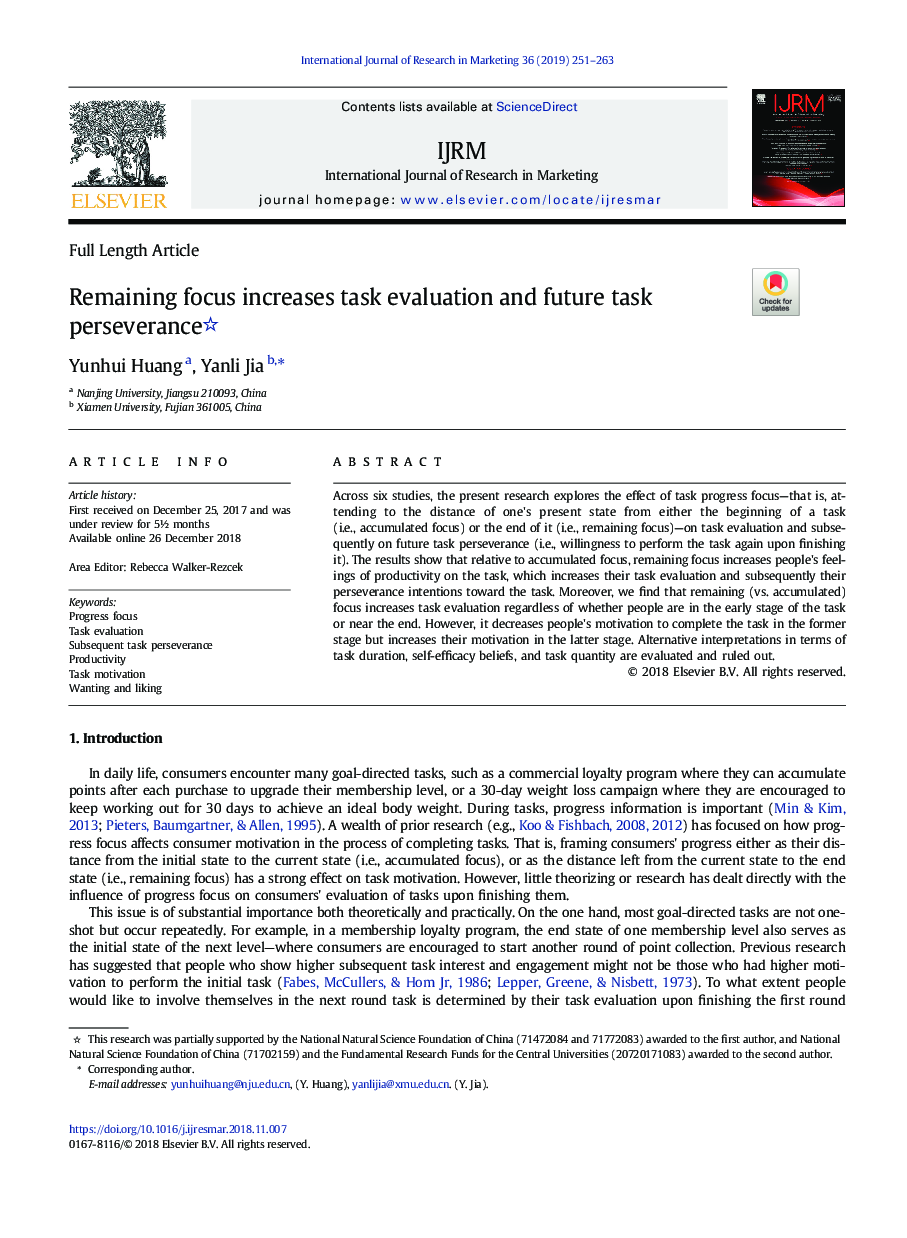| Article ID | Journal | Published Year | Pages | File Type |
|---|---|---|---|---|
| 13455824 | International Journal of Research in Marketing | 2019 | 13 Pages |
Abstract
Across six studies, the present research explores the effect of task progress focus-that is, attending to the distance of one's present state from either the beginning of a task (i.e., accumulated focus) or the end of it (i.e., remaining focus)-on task evaluation and subsequently on future task perseverance (i.e., willingness to perform the task again upon finishing it). The results show that relative to accumulated focus, remaining focus increases people's feelings of productivity on the task, which increases their task evaluation and subsequently their perseverance intentions toward the task. Moreover, we find that remaining (vs. accumulated) focus increases task evaluation regardless of whether people are in the early stage of the task or near the end. However, it decreases people's motivation to complete the task in the former stage but increases their motivation in the latter stage. Alternative interpretations in terms of task duration, self-efficacy beliefs, and task quantity are evaluated and ruled out.
Keywords
Related Topics
Social Sciences and Humanities
Business, Management and Accounting
Marketing
Authors
Yunhui Huang, Yanli Jia,
